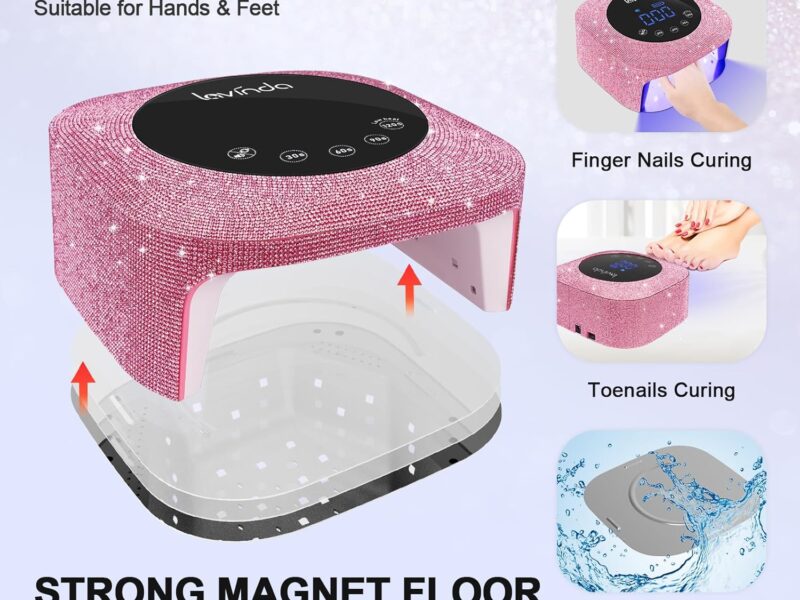Imagine this: you’re getting ready for a special occasion, only to discover that one of your nails is broken or chipped. Panic sets in as you realize you don’t have the time or the means to visit a salon before the event. But fear not, because we have the solution to your nail dilemma. In this article, we will show you how to repair a broken or chipped nail without a salon visit. With a few simple steps and everyday household items, you’ll have your nails looking fabulous in no time. Say goodbye to nail emergencies and hello to beautifully manicured nails, effortlessly fixed in the comfort of your own home. So grab your supplies and let’s get started on reviving your nails to perfection!
Hiring: Chat Job with FB Messenger $25/hour. See Requirements Now
Preparation
Before you begin repairing your broken or chipped nail, it’s important to gather all the necessary supplies. You’ll need a nail file, nail glue, nail wraps or tea bags, clear polish, a buffing block, and a pair of clean nail clippers. Additionally, make sure your nails are clean and dry before starting the repair process. This will ensure better adhesion and a longer-lasting repair.
Repairing a Broken Nail
Assess the damage
Take a close look at your broken nail to determine the extent of the damage. Assess whether the nail is partially broken or completely detached from the nail bed. This will help you decide which repair method to use.
Trim the broken nail
If your nail is partially broken, use a pair of nail clippers to carefully trim off any sharp or jagged edges. This will prevent further damage and make the repair process easier.
File the remaining nail
After trimming the broken nail, use a nail file to gently shape and smooth the remaining nail. This will create a clean surface for the repair products to adhere to.
Apply nail glue
Next, apply a small amount of nail glue to the broken area of your nail. Be sure to use a nail glue specifically designed for repairing nails, as it provides a strong and long-lasting bond.
Secure with a nail wrap
To reinforce the repair, place a nail wrap or a small piece of a tea bag over the nail glue. Gently press it down to ensure it adheres well to the nail. Nail wraps or tea bags add extra strength and support, preventing the nail from further breaking or splitting.
Buff and shape the repaired nail
Once the nail wrap is securely in place, use a buffing block to smooth out any rough edges and blend the repaired area with the rest of the nail. Take your time and be gentle to achieve a seamless finish. Finish off with a top coat to protect your repaired nail and give it a glossy appearance.
Fixing a Chipped Nail
Assess the chip
If you have a chipped nail rather than a broken one, start by assessing the size and location of the chip. Is it a small chip on the edge of the nail or a larger chip on the surface? This will guide you in choosing the most appropriate repair method.
Smooth the chip
Using a gentle file or buffer, carefully smooth out the chip to create an even surface. Be careful not to file too aggressively, as this can weaken the nail and lead to further damage.
Apply nail glue or clear polish
Once the chip has been smoothed, you can choose to either apply a small amount of nail glue or a clear polish to the chipped area. Nail glue will provide a stronger bond, while clear polish can help seal the chip and prevent further peeling or chipping.
Buff and blend the repaired area
After applying the nail glue or clear polish, use a buffing block to gently blend the repaired area with the rest of the nail. This will create a smooth and seamless finish. Finish off with a top coat to protect the repaired nail and add shine.
Alternative Solutions
While nail glue and wraps are the most common methods to repair broken or chipped nails, there are a few alternative solutions you can try if you don’t have these supplies readily available.
Using a tea bag or coffee filter
If you don’t have nail wraps on hand, you can use a tea bag or a coffee filter as a substitute. Cut a small piece of the tea bag or coffee filter to cover the broken or chipped area. Apply a layer of nail glue, then carefully press the tea bag or coffee filter onto the glue. Once it’s dry, proceed to buff and shape the nail as usual.
Using a tea bag and nail glue
Another alternative is to use only a tea bag and nail glue. Cut a small piece of the tea bag and apply a layer of nail glue to the broken or chipped area. Place the tea bag piece over the glue and press gently to secure it. Trim any excess tea bag and buff the nail smooth.
Using a paper and clear polish
In the absence of clear polish, you can also use a small piece of paper and clear nail polish to repair a chipped nail. Cut a small strip of paper and apply a layer of clear polish to the chipped area. Press the paper onto the polish and allow it to dry. Once dry, file and shape the nail as needed.
Preventing Future Breaks and Chips
While it’s great to know how to repair broken or chipped nails, it’s even better to prevent them from happening in the first place. Here are some tips to help you maintain strong and healthy nails.
Keep your nails at a moderate length
Maintaining a medium length for your nails can help prevent them from becoming too brittle or prone to breaks. Avoid excessively long nails that can easily snag or break, especially if you lead an active lifestyle.
Avoid using nails as tools
Using your nails as tools, whether it’s opening packages, scratching off stickers, or prying objects, can put unnecessary stress on them and increase the risk of breaks and chips. Instead, reach for appropriate tools and protect the integrity of your nails.
Moisturize your hands and nails
Regularly moisturizing your hands and nails is essential for maintaining their strength and flexibility. Dry nails are more likely to become brittle and susceptible to breaks and chips. Apply a moisturizing lotion or oil to your hands and nails daily to keep them hydrated and healthy.
Use a strengthening base coat
Applying a strengthening base coat before you paint your nails can provide an extra layer of protection and fortify your nails. Look for base coats that specifically target nail strength and help prevent breakages.
Be mindful of damaging activities
Certain activities can be particularly tough on your nails, such as gardening, cleaning, or playing sports. While it’s not always possible to avoid these activities altogether, taking precautions like wearing gloves or using protective tools can help minimize the risk of nail damage.
Caring for Your Repaired Nails
After successfully repairing your broken or chipped nail, it’s important to take proper care of it to ensure it stays in good condition. Here are some tips for caring for your repaired nails.
Apply a top coat
Once your repair is complete, apply a top coat to protect the repaired area. A top coat adds an extra layer of durability and can help extend the lifespan of your repair.
Keep your nails moisturized
Moisturizing your nails doesn’t stop after the repair process. Continue to apply lotion or oil to your hands and nails regularly to keep them hydrated and prevent dryness, which can lead to brittleness and breakage.
Avoid excessive exposure to water
Excessive exposure to water, such as prolonged periods of soaking or swimming, can weaken the adhesive bond and compromise your nail repair. Whenever possible, try to minimize water contact or protect your nails with gloves or waterproof coatings.
Be cautious with activities that stress the nails
Remember that your repaired nail may still be slightly more fragile than the rest of your nails. Avoid activities that put excessive stress or pressure on your nails, such as forcefully opening tight lids or engaging in activities that involve repeated impact on your fingernails.
When to Seek Professional Help
While most minor nail damages can be successfully repaired at home, there are instances where it may be necessary to seek professional help.
Severe or recurring nail damages
If you experience severe or recurring nail damages despite your best efforts to prevent them, it may be a sign of an underlying issue. Consulting a nail technician or a dermatologist can help identify any underlying nail conditions and provide appropriate treatment.
Infections or signs of Nail Fungus
If you notice signs of infection, such as redness, swelling, pus, or an unpleasant odor, it’s important to seek professional help. These could be indications of a nail fungus or a bacterial infection that require medical attention.
Extreme pain or bleeding
If you accidentally injure your nail to the point of extreme pain or bleeding, it’s crucial to seek immediate medical assistance. A healthcare professional can assess the severity of the injury and provide the necessary treatment.
Conclusion
Repairing a broken or chipped nail without a salon visit is not only possible but also an opportunity to save time and money. By following simple steps and using readily available supplies, you can restore the beauty of your nails and maintain their health. Additionally, developing good nail care habits, such as keeping your nails moisturized, avoiding excessive stress, and using strengthening base coats, will help prevent future breaks and chips. With a little patience and upkeep, you can achieve beautiful, strong nails right from the comfort of your own home.




